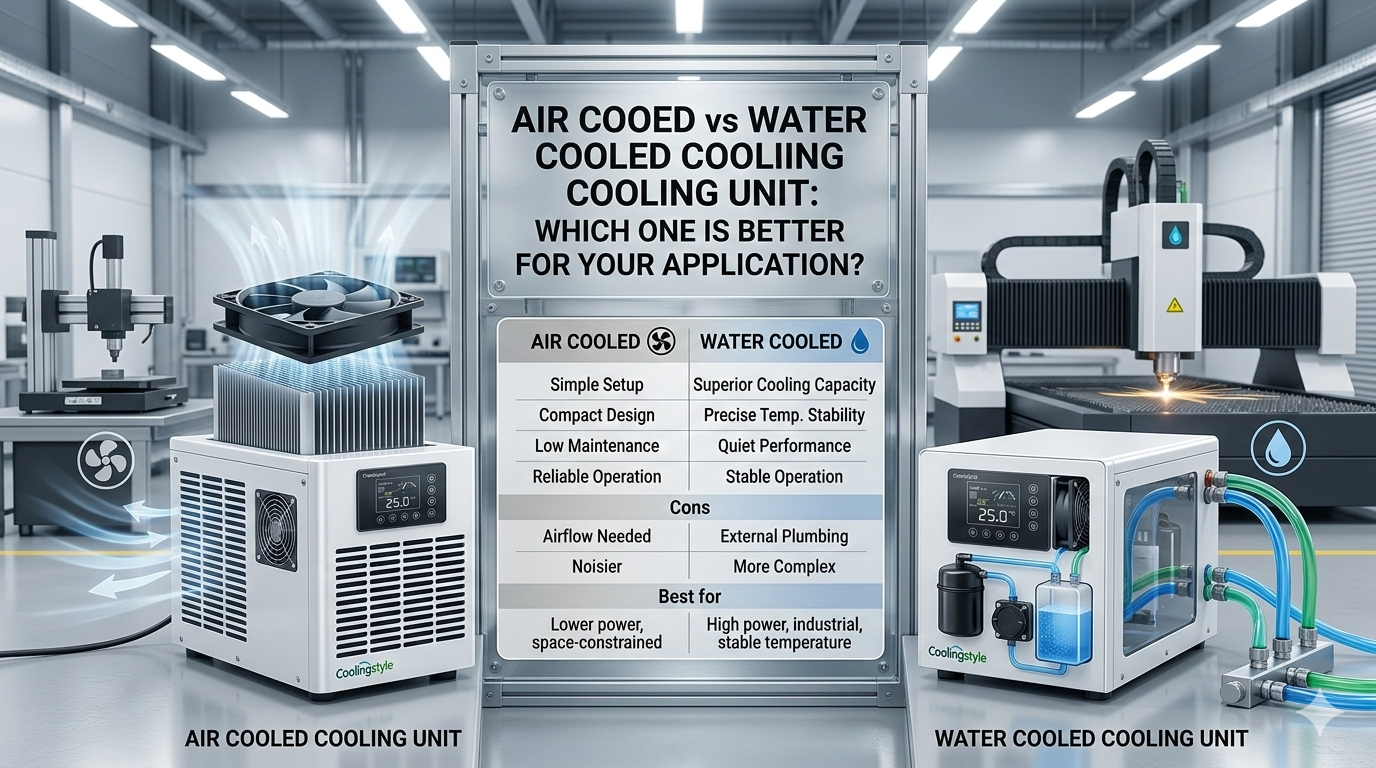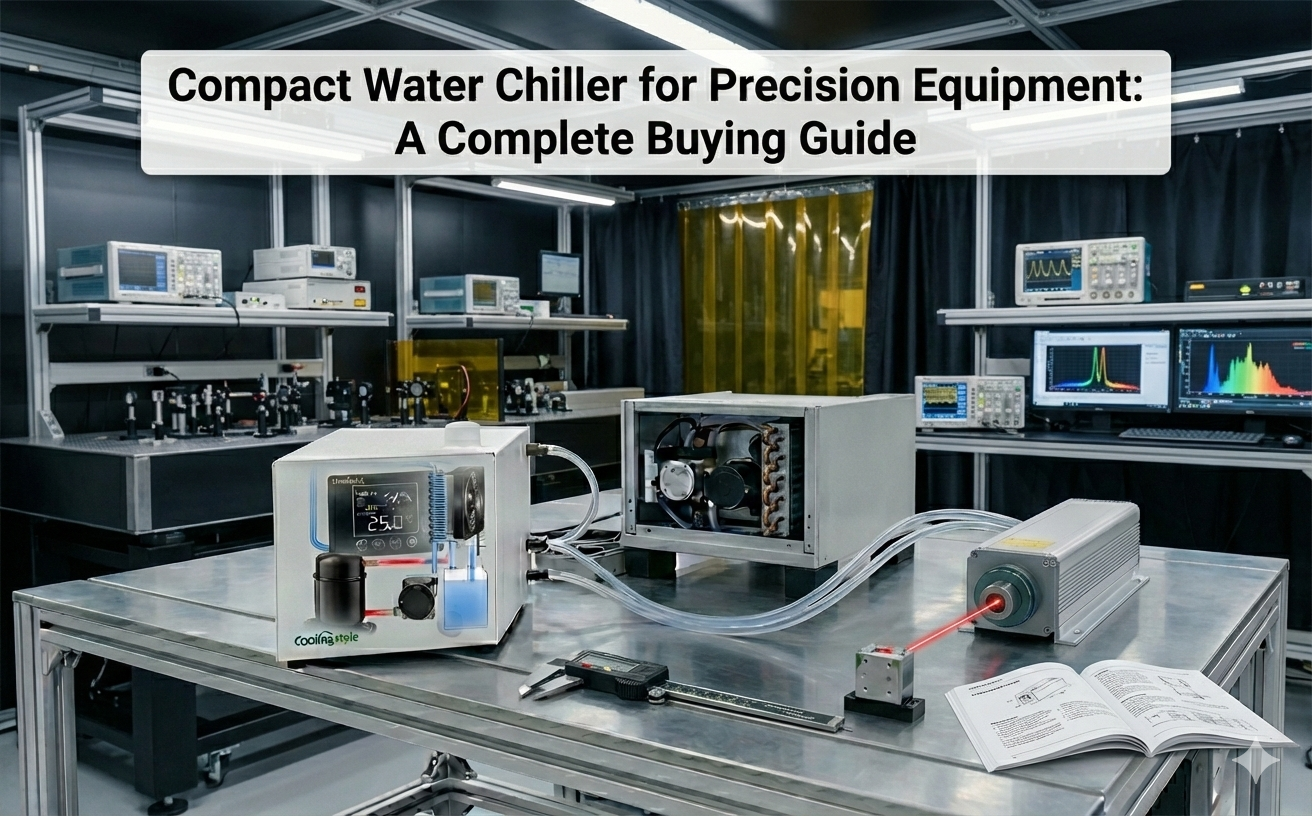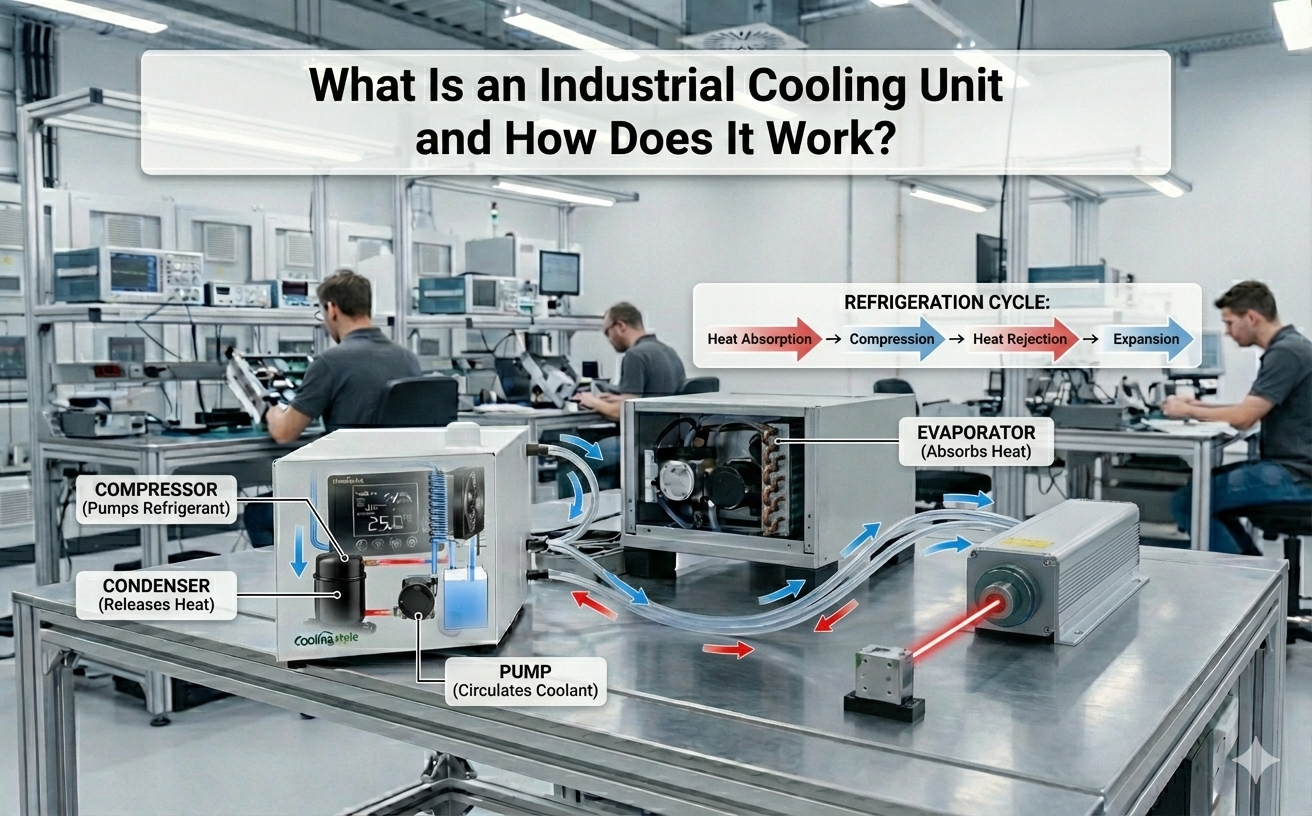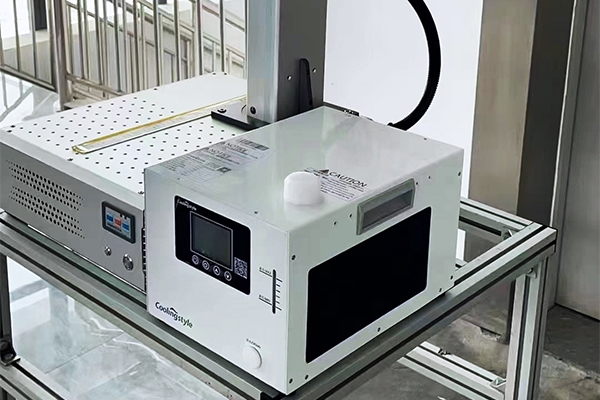In the in-vitro diagnostics (IVD) industry, precise and stable temperature control1 is crucial, as it directly impacts the accuracy of test results. Temperature fluctuations can affect the performance of sensitive instruments and lead to inconsistent data. DC inverter chillers2 have become the ideal cooling solution for laboratories due to their high energy efficiency3, precise temperature control1, extended equipment lifespan, strong adaptability, and low noise operation. These features help laboratories enhance productivity and reliability.
1. High Energy Efficiency
One of the key advantages of DC inverter chillers2 is their ability to optimize energy usage. Unlike traditional chillers that run at a constant speed, DC inverter chillers2 dynamically adjust compressor speed based on real-time cooling demand, significantly reducing unnecessary energy consumption.
For laboratories operating 24/7, such as diagnostic centers and research institutions, energy costs4 are a major concern. By lowering power consumption, DC inverter chillers2 offer long-term cost savings. Additionally, reducing energy waste aligns with modern laboratories’ sustainability goals5, helping institutions meet environmental standards while maintaining operational efficiency.
2. Precise Temperature Control
Temperature stability6 is critical in IVD applications, particularly for processes such as polymerase chain reaction (PCR), immunoassays, and biochemical analysis. Even minor temperature fluctuations can impact enzyme activity, reagent stability, and test accuracy.

DC inverter chillers2 excel in providing superior temperature regulation. By continuously adjusting compressor operation, these chillers maintain a consistent cooling output, preventing sudden temperature spikes or drops. Some models also feature advanced control systems that allow real-time temperature monitoring7 and remote adjustments, further enhancing laboratory efficiency and reliability.
3. Extended Equipment Lifespan & Low Maintenance Costs
The longevity of laboratory equipment is crucial for maintaining smooth operations. Traditional chillers, which operate at a constant high speed, experience significant wear and tear, leading to frequent breakdowns and high maintenance costs.
DC inverter chillers2, however, run at variable speeds, reducing mechanical strain on the compressor. This smooth and controlled operation minimizes wear and tear, extending the lifespan of both the chiller and connected laboratory instruments. As a result, laboratories experience fewer unexpected equipment failures, reducing downtime and maintenance expenses.

Additionally, fewer mechanical failures mean lower repair and replacement costs, further optimizing laboratory operations.
4. Adaptability to Variable Load Conditions
Cooling requirements in IVD laboratories can vary depending on factors such as sample volume, test types, and ambient temperature. Traditional chillers struggle to efficiently adapt to these changing conditions, often leading to overcooling or undercooling issues.

DC inverter chillers2 automatically adjust their performance based on real-time cooling demands. Whether the lab is running a high-volume testing session or a low-load operation, the chiller fine-tunes its cooling capacity to match demand. This ensures optimal efficiency and performance while preventing excessive energy consumption.
Their flexible operation8 makes them suitable for various laboratory applications, including clinical diagnostics, pharmaceutical research, and biomedical studies.
5. Low Noise Operation for an Optimized Lab Environment
Noise levels in a laboratory setting can significantly impact the working environment. Scientists and technicians often require a quiet workspace9 for concentration, and excessive noise from laboratory equipment can lead to discomfort and reduced focus.
DC inverter chillers2 operate with significantly lower noise levels than traditional chillers. By adjusting compressor speed smoothly and avoiding sudden power surges, these chillers produce minimal vibrations and sound. This contributes to a quieter, more comfortable workspace, improving focus and efficiency among laboratory personnel.
Additionally, the reduced noise levels make these chillers ideal for environments where low acoustic disturbance10 is essential, such as research facilities and medical diagnostic centers.
Conclusion
DC inverter chillers2 are perfectly suited to the high standards of the IVD industry, offering unmatched energy efficiency3, precise temperature control11, durability, adaptability, and low noise operation. Their ability to optimize cooling performance while reducing operational costs makes them an essential investment for modern laboratories.
As the demand for sustainable and high-performance laboratory equipment continues to grow, DC inverter chillers2 are set to become a key component in diagnostic and research facilities. By choosing the right cooling solution, laboratories can ensure stable experimental conditions, improve test accuracy, and achieve long-term operational success.
Coolingstyle’s Products & Services
As a leader in precision temperature control technology, Coolingstyle offers a range of DC inverter chillers2 designed for the IVD industry, including the Q580 and M160 series. These chillers cater to various laboratory cooling needs with advanced variable-speed compressor technology, providing temperature control accuracy12 of ±0.1°C to ensure a stable experimental environment.

Additionally, we offer customized solutions13, allowing clients to tailor chiller capacity, flow rate, and communication interfaces (such as RS485 and RS232) to integrate seamlessly with laboratory equipment.
If you need guidance in selecting the best cooling system for your laboratory, our technical team is available to provide expert advice and help you implement the most efficient and reliable cooling solution.
-
Understanding the significance of temperature control can help improve laboratory practices and ensure reliable test outcomes. ↩ ↩
-
Explore how DC inverter chillers can enhance temperature control and efficiency in the IVD industry, ensuring accurate test results. ↩ ↩ ↩ ↩ ↩ ↩ ↩ ↩ ↩ ↩ ↩
-
Learn about the role of energy efficiency in reducing costs and improving sustainability in laboratory environments. ↩ ↩
-
Learn strategies to minimize energy costs in laboratories, ensuring sustainability and efficiency. ↩
-
Discover effective practices that help laboratories meet their sustainability goals while enhancing performance. ↩
-
Understanding temperature stability is crucial for ensuring accurate results in IVD applications, making this resource invaluable for lab professionals. ↩
-
Real-time monitoring can significantly improve laboratory efficiency and reliability, making it essential for modern IVD applications. ↩
-
Discover why flexible operation is crucial for laboratory equipment to adapt to varying workloads and enhance productivity. ↩
-
Discover the advantages of a quiet workspace in laboratories and its effects on concentration and overall productivity. ↩
-
Learn about the significance of low acoustic disturbance in research facilities and how it impacts productivity and comfort. ↩
-
Discover why maintaining precise temperature control is vital for accurate results in laboratory experiments and research. ↩
-
Learn why temperature control accuracy is crucial for reliable experimental results and how it impacts your research. ↩
-
Discover how tailored cooling solutions can meet specific laboratory needs and improve overall performance. ↩






